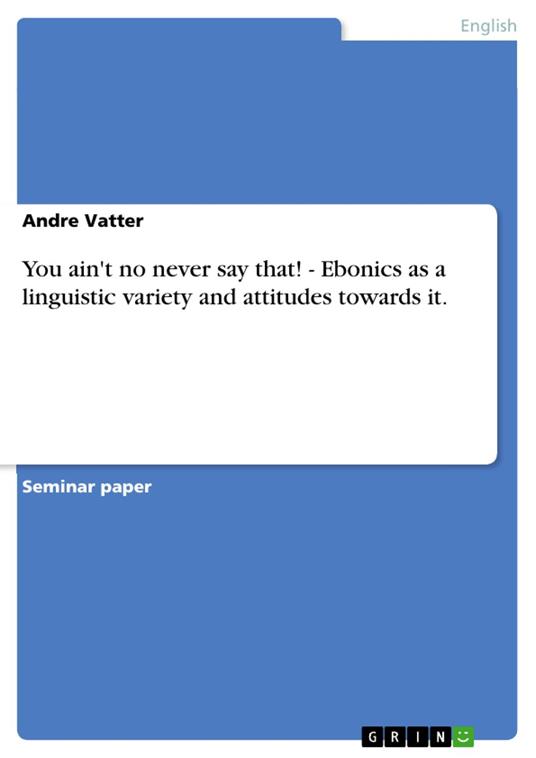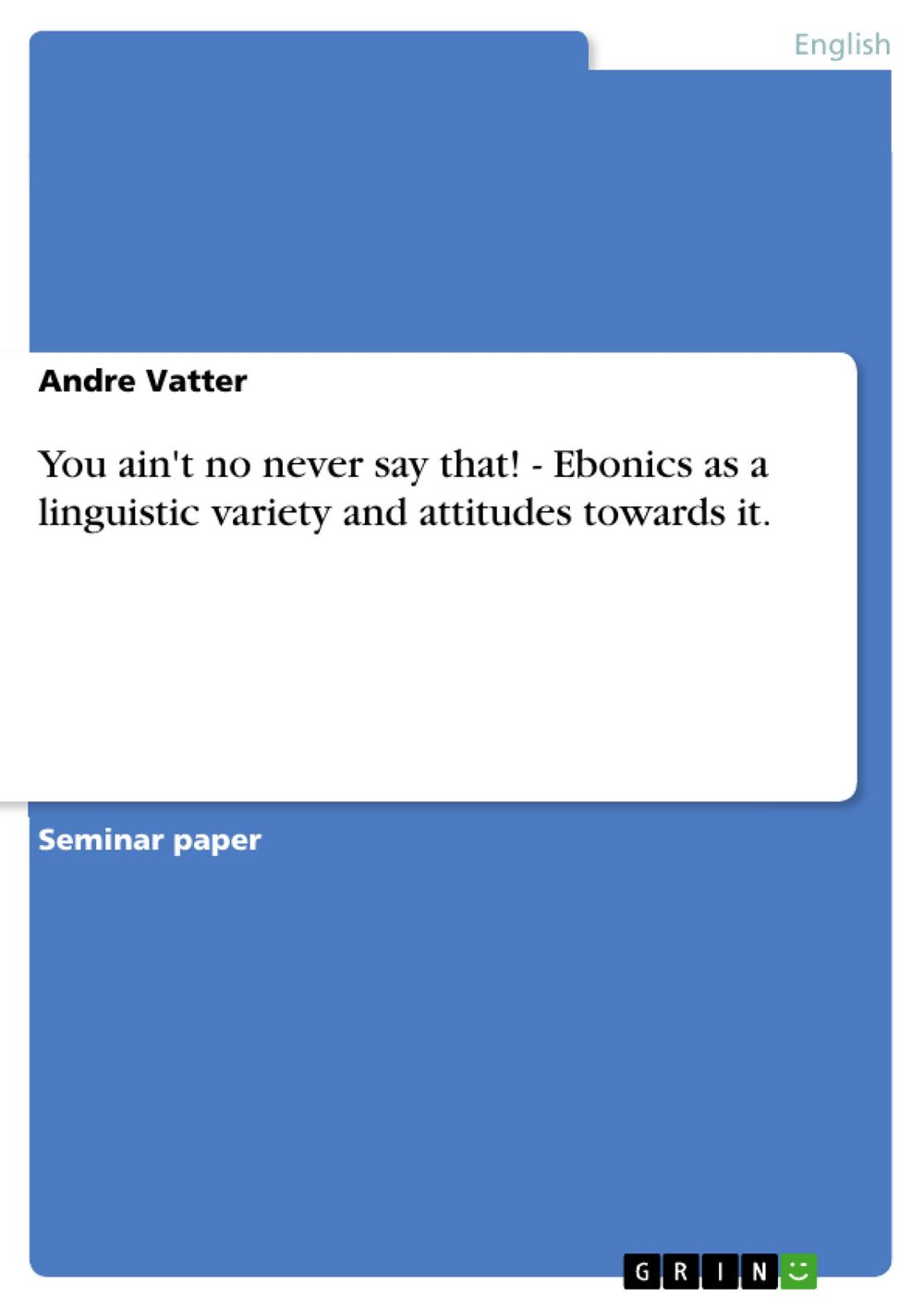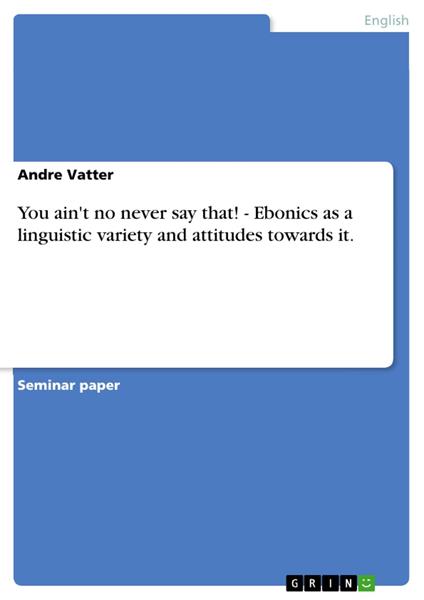You ain't no never say that! - Ebonics as a linguistic variety and attitudes towards it.
Seminar paper from the year 2003 in the subject English Language and Literature Studies - Linguistics, grade: 2+ (B), University of Cologne (English Seminar), language: English, abstract: There are several definitions about what language variations are and numerous labels have been given to them. A. D. Edwards, Senior Lecturer in Education at the University of Manchester, for example distinguished four different kinds of dialects that can be found in almost every language.1 According to Edwards the Standard Dialect is that variety, which is most commonly used in everyday life, in media, government, religion – and on every other occasion “when speech most closely resembles the written form”.2 Geographical Dialects evolve out of isolation of groups of speakers of one language. The more time passes, the less theses speakers will sound the same and differences in pronunciation, grammar and lexis will occur, creating regional divergences of the source language. The same can happen in microcosmic relation, for example in urban life, where sharp differences in speech between speakers not only reflect but also reinforce social distances. Variations here are called Social Class Dialects. Last not least, Edwards determines the Ethnic Dialect as a variation that “often contains reminders of the ‘native’ language, the intrusion of ‘foreign’ sound, words and structures, and it often reflects the residential and perhaps occupational segregation.”3 And this is what the whole issue of Ebonics, of Black English, of African American Vernacular English (AAVE) in America deals with. It raises questions: What is Black English and what characterizes it? Is it a dialect, a language? How does segregation show in the use of a language, and what is the public opinion towards black slang? What do the blacks think about their own way of communication? This paper will take a close look at these questions and will show aspects of controversies in America’s current public discussions. It will show that the concept of Ebonics is mores than just a plain way of speaking and how a language – at the same time – can be a symbol of status as well as a social curse to a whole culture. 1 Edwards, J. A., Language in Culture and Class. 2 Edwards, J. A., 1976, p. 46. 3 Edwards, J. A., 1976, p. 48.
-
Autore:
-
Anno edizione:2003
-
Editore:
-
Formato:
-
Lingua:Inglese
Formato:
Gli eBook venduti da Feltrinelli.it sono in formato ePub e possono essere protetti da Adobe DRM. In caso di download di un file protetto da DRM si otterrà un file in formato .acs, (Adobe Content Server Message), che dovrà essere aperto tramite Adobe Digital Editions e autorizzato tramite un account Adobe, prima di poter essere letto su pc o trasferito su dispositivi compatibili.
Cloud:
Gli eBook venduti da Feltrinelli.it sono sincronizzati automaticamente su tutti i client di lettura Kobo successivamente all’acquisto. Grazie al Cloud Kobo i progressi di lettura, le note, le evidenziazioni vengono salvati e sincronizzati automaticamente su tutti i dispositivi e le APP di lettura Kobo utilizzati per la lettura.
Clicca qui per sapere come scaricare gli ebook utilizzando un pc con sistema operativo Windows



